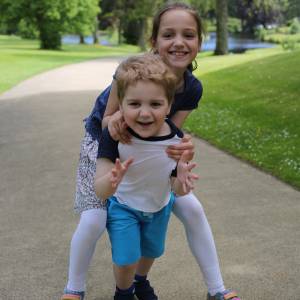Home Education
Today was the day we emailed the request to our local authority for consent to withdraw Conor from school. It has been just over a year since we first started considering it, but recent events have made it very clear that it is the right thing to do.
Here is the required Educational Philosphy and Outline of Educational Provision we prepared to go with the request:
For some time, we have been concerned that our son Conor is languishing in the school system. We have worked very closely with his primary school to address this and have taken a number of actions, including a period of partial home schooling (2 afternoons per week) between February and June 2023. Conor was referred for assessment by Neurodevelopmental Services in November 2019; however the assessment was only conducted in November/December last year. It was confirmed that he meets the threshold for autism diagnosis. Due to his performance in the tests and the indications of his level of intelligence and cognitive ability, his clinician also referred him for cognitive assessment by the child psychologist. He was assessed on 19th and 20th December 2023 and the findings confirm that Conor’s IQ would mark him out as gifted/highly able.
Conor struggles with social interactions at school, and has considerable challenges around sensory overload. He is increasingly withdrawing from completing his schoolwork because he finds it boring and is not being challenged. This creates obvious difficulties for his teachers, who have repeatedly told us that they cannot assess his progress because he won’t do the work.
Now that the clinical diagnosis process is complete, we feel that we have the evidence we need to confirm our own observations about Conor, namely that his level of intelligence and areas of interest mean that he can tackle challenges in subjects such as computer programming and maths way beyond his age, and that his skills in areas such as music, drama and storytelling need to be nurtured.
It is our view that not only is the school environment not helping Conor, but that it is detrimental to his educational development and overall wellbeing. We are strongly of the opinion that he would be better off being home educated. We already home educate our older child, Orla Jackson, who we withdrew from St Maurice’s High School in March last year, so as a family we have experience of home schooling.
I work from home, and have both the capacity to supervise Conor’s learning and the ability to be actively engaged in his education. More importantly, both myself and Conor’s Mum are enthusiastic about his education and want to be involved as much as possible. He is an extremely intelligent child and we feel that he would benefit hugely from being able to take more control over his own pace of learning. We also believe that the traditional education system does not sufficiently encourage the skills and abilities that will be vital to his future.
We intend to enrol Conor in Wolsey Hall online school to eventually pursue IGCSEs. He has a strong aptitude for maths and will be able to start studying for the maths IGCSE immediately. He will probably sit the exam aged 12 and then start with other subjects (most likely sciences) from that point.
In addition to online schooling, we will provide Conor with the following:
· Weekly Speech and Drama class with an online tutor.
· Weekly guitar and saxophone lessons.
· Weekly golf lessons.
· A weekly acting class at the Royal Conservatoire of Scotland when he is old enough (the same class his sister attends)
A significant part of our Conor’s struggle with school is the physical environment. Physical activity will play a regular and important part in his day. He will do daily walks, regular exercise and will have the opportunity to take up golf.
He already has ample access to educational materials at home and we will continue to enhance the resources we make available to him. Examples include:
· Subscriptions to apps and websites such as Brainscape, Duolingo, Udemy and Skillshare.
· A wide selection of books within the home and membership of local libraries
· Access to a range of art and craft materials within the home
· Visits to museums, art galleries, sites of historical interest, Sites of Special Scientific Interest.
· Trips to the theatre and cinema
His opportunities to interact with other children and adults will come from the classes he already takes, the opportunity to meet new people through hobbies and extracurricular activities, and engagement with other home educating families. We will also make use of any support groups that we are referred to or are recommended to us, such as Hope for Autism, that may allow him to meet other children who have similar interests and challenges to himself.

Comments
Sign in or get an account to comment.


